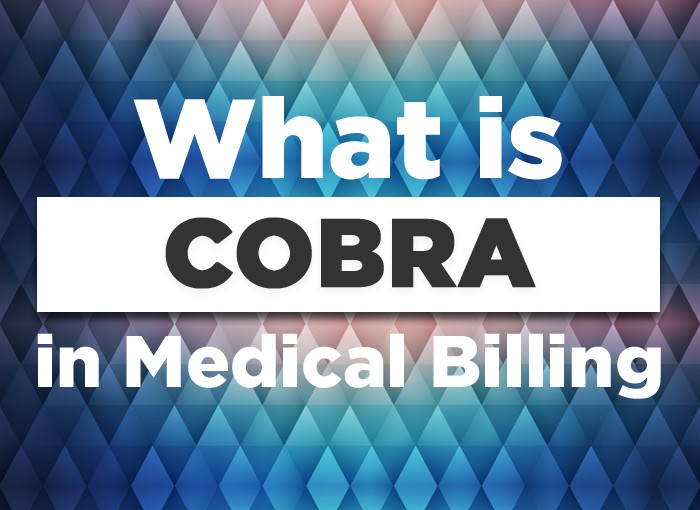Understanding COBRA in Medical Billing: Eligibility Criterias & Benefits
COBRA stands for Consolidated Omnibus Budget Reconciliation Act. It is related to the health insurance program that brings certain privileges for employees, so that they can continue benefits of their health insurance after losing jobs or/and, at time of reduction in their work hours.
As per the Centers for Medicare and Medicaid Services (CMS), COBRA amended the Public Health Service Act, the Internal Revenue Code, and the Employee Retirement Income Security Act (ERISA), to require employers with 20 or more employees, to provide temporary continuation of group health coverage in certain situations, where it would otherwise be terminated.
It is important to note that COBRA coverage begins with a qualifying event that “would cause an individual to lose health coverage under a group health plan.” The beneficiary is required to pay premiums on time to ensure the continuation of COBRA.
Understanding COBRA
COBRA is a complicated insurance plan with many aspects and guidelines involved in its design. Therefore one must understand its benefits and eligibility criterias to avoid any confusion.
1. Qualifying Events
Some of the qualifying events triggering COBRA may include:
- Voluntary or involuntary termination of an employee’s employment (unless it is for some misconduct)
- Reduction in employee’s working hours (for example, from full to part-time)
- A covered spouse’s divorce or legal separation from an employee
- Death of a covered employee
- A covered dependent’s change in status
2. Eligible Employees/Beneficiaries
Employees covered by a group health plan on the day before a “qualifying event” are entitled to COBRA continuation coverage plan. Depending on the qualifying events, the following individuals may be eligible for COBRA:
- A covered employee (a term that includes active employees, terminated employees, and retirees)
- A covered employee’s spouse and dependent children
- Any child born to or placed for adoption with a covered employee during the period of COBRA coverage
- Agents
- Directors of the employer
- For public sector group health plans, political appointees and elected officials
- Independent contractors and their employees
- Self-employed individuals
3. The coverage Period for Covered Employees
The length of COBRA coverage depends on two factors—regularity in the payment of premiums and type of qualifying event. Depending on these two factors, the coverage of COBRA is:
- 18 months—the qualifying event is the voluntary or involuntary termination of employment including retirement and reduction in employee’s working hours
- 36 months—the qualifying
4. Benefits Covered under COBRA
- Alcohol and substance abuse plans
- Dental plans
- Health care plans
- Hearing plans
- Vision plans
- Medical spending accounts
- Mental health plans
- Prescription drug plans
The benefits of COBRA insurance plans are not provided to people with disability insurance, life insurance, retirement plans, and vacation plans.
5. COBRA for Disabled Individuals
Disables individuals and their dependant family members are qualified beneficiaries for COBRA. They are eligible for up to an 11-month extension of COBRA continuation coverage, for a total of 29 months. However, the 11-month COBRA extension law tends to get complicated with additional eligibility criteria. It is important to note that the – “disability must begin within the first 60 days of COBRA coverage, the determination under title II or XVI can be issued any time during the 18-month period of COBRA coverage that began with the qualifying event.
Therefore, COBRA is really important to understand lately, especially during COVID-19, when the world is witnessing this global pandemic at one hand, and concurrently suffering from loss in overall revenue and manpower of the health care industry at other hand. Along with awareness, COBRA will ensure the continuation of your medical benefits during testing times.




